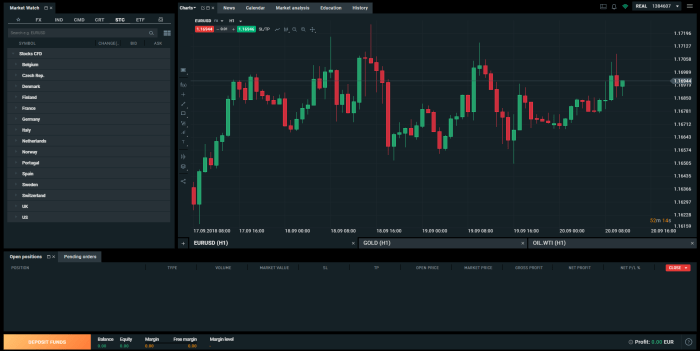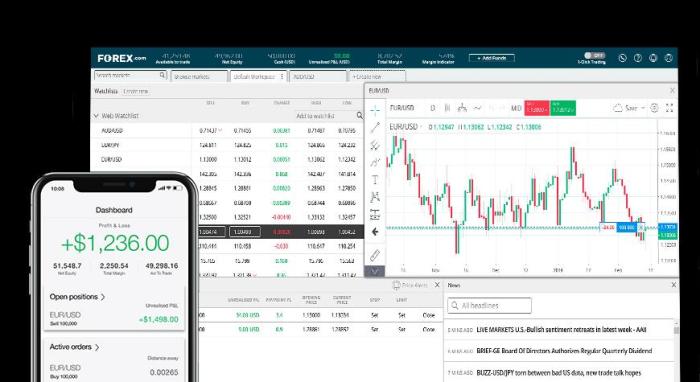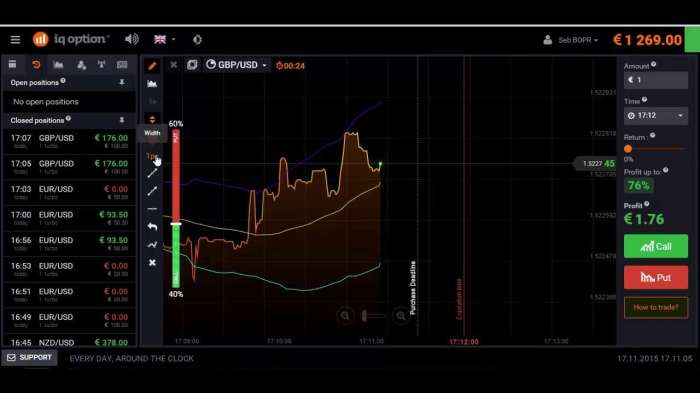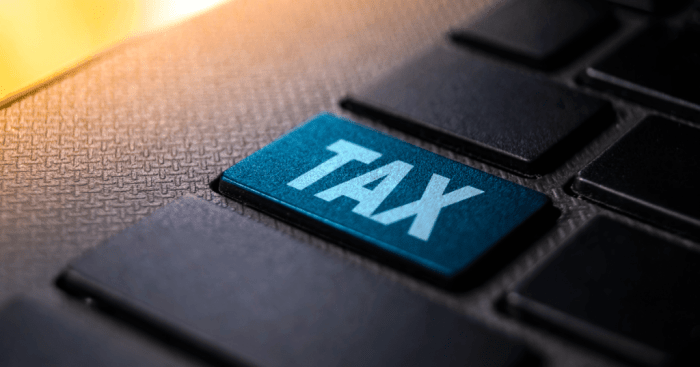
Tax on forex trading isn’t just about filling out forms; it’s about understanding the intricate dance between profits, regulations, and your hard-earned cash. This guide navigates the complexities of forex taxation, exploring the different types of taxes levied globally, the reporting processes in major economies, and how tax laws impact your trading strategies. Whether you’re a seasoned swing trader or a newbie dipping your toes into the forex market, understanding the tax implications is crucial for long-term success and avoiding costly mistakes.
We’ll break down the tax implications of various trading strategies, explore allowable deductions, and discuss the potential pitfalls of using offshore brokers. Prepare to demystify the world of forex taxation and gain a competitive edge by mastering the rules of the game. This isn’t just about compliance; it’s about optimizing your financial gains and building a sustainable forex trading career.
Types of Forex Trading Taxes

Navigating the world of forex trading involves more than just charting patterns and predicting market movements; understanding the tax implications is crucial for maximizing profits and avoiding hefty penalties. The tax landscape for forex trading varies significantly across countries, depending on factors like residency, trading frequency, and the type of trading account used. This section will delve into the complexities of forex taxation, providing a clearer picture of what you need to know.
Global Variations in Forex Trading Tax Structures
Taxation on forex trading profits differs considerably across the globe. Some countries treat forex trading as a capital gain, taxed at a lower rate than income tax, while others consider it regular income, subject to higher tax brackets. The United States, for instance, generally treats forex trading profits as ordinary income, meaning they’re taxed at the individual’s ordinary income tax rate. This can range from 10% to 37% depending on the trader’s income bracket. In contrast, countries like the United Kingdom and Australia have more nuanced systems, often offering capital gains tax rates for longer-term forex trading. The specific regulations and rates are constantly subject to change, so staying updated with your country’s tax laws is paramount. Consider seeking professional tax advice tailored to your specific circumstances.
Tax Implications of Different Forex Trading Strategies
The frequency and duration of your trades significantly impact your tax liability. Scalping, swing trading, and day trading all fall under different tax umbrellas.
| Trading Strategy | US Tax Treatment | UK Tax Treatment | Australia Tax Treatment |
|---|---|---|---|
| Scalping | Ordinary Income | Ordinary Income (likely) | Ordinary Income (likely) |
| Swing Trading | Ordinary Income (if frequent) / Capital Gains (if infrequent) | Capital Gains (potentially) | Capital Gains (potentially) |
| Day Trading | Ordinary Income | Ordinary Income (likely) | Ordinary Income (likely) |
*Note:* Tax laws are complex and this table provides a simplified overview. The actual tax treatment can depend on various factors, including the specific circumstances of the trader and the relevant tax laws in effect. Always consult with a qualified tax professional for personalized advice.
Tax Differences Between Individual and Institutional Forex Traders, Tax on forex trading
The tax implications for individual and institutional forex traders differ significantly.
- Record Keeping: Individual traders often have less stringent record-keeping requirements compared to institutional traders, who are subject to more rigorous auditing and compliance procedures.
- Tax Rates: Individual traders typically face income tax rates based on their personal income brackets, while institutional traders may have different tax structures, potentially benefiting from corporate tax rates or specific tax exemptions.
- Reporting Requirements: The frequency and detail of tax reporting differ greatly. Institutional traders often have more complex reporting requirements due to the volume and complexity of their transactions.
- Deductions: While both individual and institutional traders can claim certain deductions (like trading expenses), the specific deductions and their eligibility criteria may vary significantly.
Tax Reporting for Forex Trading: Tax On Forex Trading
Navigating the world of forex trading taxes can feel like navigating a maze, especially with the complexities of international markets and varying regulations. Understanding how to correctly report your forex trading income is crucial to avoid penalties and ensure you’re complying with the law. This section provides a clearer path, outlining the reporting process in different jurisdictions.
Forex Trading Tax Reporting in the United States
Reporting forex trading income in the US involves careful record-keeping and the accurate completion of relevant tax forms. The IRS considers forex trading profits as capital gains or ordinary income, depending on the holding period of your trades. Short-term gains (held for one year or less) are taxed at your ordinary income tax rate, while long-term gains (held for more than one year) are taxed at preferential capital gains rates.
- Record Keeping: Meticulously track all forex transactions, including the date, currency pair, buy/sell price, amount traded, and any fees or commissions. Software designed for tax reporting for traders can greatly simplify this process.
- Form 1040, Schedule D (Capital Gains and Losses): This is the primary form used to report capital gains and losses from forex trading. You’ll need to categorize your gains as short-term or long-term and report the net amount (gains minus losses).
- Form 8949 (Sales and Other Dispositions of Capital Assets): This form provides the detailed breakdown of your capital gains and losses that supports the information reported on Schedule D. Each transaction needs to be listed individually.
- Filing Deadline: Tax returns in the US are typically due on April 15th, though this can vary depending on the year.
Forex Trading Tax Reporting in the United Kingdom
In the UK, forex trading profits are generally considered as income from self-employment. This means that you’ll need to declare your forex trading profits along with any other self-employment income on your Self Assessment tax return.
- Self Assessment Tax Return: This is the primary form used to report your forex trading profits in the UK. You’ll need to complete the relevant sections to accurately reflect your trading income and expenses.
- Record Keeping: Similar to the US, detailed records of all transactions are essential. This includes all trades, fees, commissions, and any other relevant expenses. Maintaining organized records is vital for a smooth tax filing process.
- SA100 Form: This is the form used to register for Self Assessment if you haven’t already. It’s a crucial first step before you can file your tax return.
- Filing Deadline: The UK tax year runs from April 6th to April 5th of the following year. The deadline for filing your Self Assessment tax return is typically January 31st of the following year.
Comparison of Forex Trading Tax Reporting Requirements
Tax regulations vary significantly across jurisdictions. Understanding these differences is crucial for anyone trading forex internationally. The following table provides a high-level comparison of tax reporting for forex trading in the USA, UK, and Canada.
| Jurisdiction | Tax Treatment of Profits | Primary Tax Form(s) | Filing Deadline (General) |
|---|---|---|---|
| USA | Capital gains (long-term/short-term) or ordinary income | Form 1040, Schedule D; Form 8949 | April 15th |
| UK | Income from self-employment | Self Assessment Tax Return (SA100 for registration) | January 31st |
| Canada | Business income (if trading is considered a business) or capital gains (if considered investment) | T1 General Income Tax and Benefit Return; T771 Statement of Business or Professional Activities (if applicable) | April 30th |
Tax Deductions and Allowances for Forex Traders
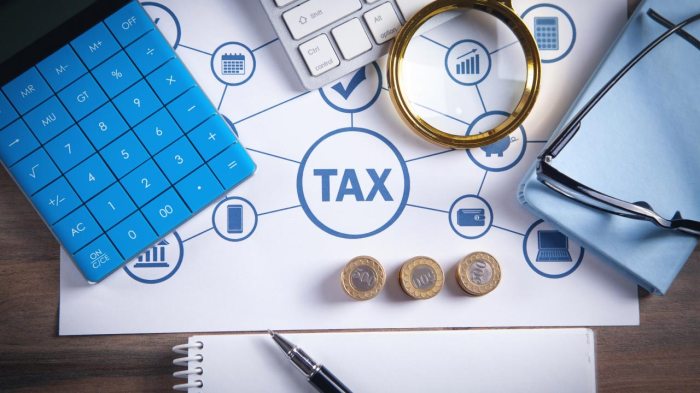
Navigating the world of forex trading taxes can feel like navigating a labyrinth, but understanding allowable deductions can significantly reduce your tax burden. Knowing what expenses qualify for deductions is crucial for minimizing your tax liability and maximizing your profits. Let’s delve into the specifics.
Forex trading, when conducted as a business, opens the door to several legitimate tax deductions. These deductions can significantly offset your taxable income, making it essential to accurately track and document all eligible expenses.
Allowable Deductions for Forex Trading Expenses
A range of expenses incurred while running your forex trading business are typically deductible. Careful record-keeping is paramount to claiming these deductions successfully. Remember to consult with a tax professional to ensure you’re taking advantage of all applicable deductions.
Enhance your insight with the methods and methods of forex trading newsletter.
- Software Subscriptions: The cost of charting software, trading platforms (like MetaTrader 4 or 5), and other specialized forex trading software is generally deductible.
- Education and Training: Expenses related to furthering your forex trading knowledge, such as attending seminars, online courses, or workshops, are often deductible. This includes books, subscriptions to financial publications, and educational software.
- Office Supplies: If you have a dedicated home office space for your forex trading activities, you can deduct expenses like printer ink, paper, and other office supplies used exclusively for your trading business.
- Computer Equipment and Hardware: The cost of your computer, monitor, keyboard, and other hardware directly used for forex trading can be depreciated over time, providing a tax deduction.
- Internet and Communication Costs: A portion of your internet and phone bills, attributable to your forex trading business, is deductible. This requires careful tracking of usage.
- Travel Expenses (if applicable): If you travel for forex trading conferences or educational events, these travel expenses (airfare, accommodation, meals) may be deductible.
Demonstrating the Legitimacy of Forex Trading as a Business
The IRS scrutinizes forex trading activities to ensure they are genuine businesses, not just hobbies. Providing substantial evidence of your business-like approach is crucial to successfully claiming deductions and avoiding penalties. This requires more than just trading activity; it needs to show a structured, professional approach.
To demonstrate legitimacy, you should maintain meticulous records and provide evidence such as:
- Detailed Trading Journal: A comprehensive record of all trades, including dates, entry and exit prices, profits and losses, and rationale behind each trade. This is your most crucial piece of evidence.
- Business Plan: A well-defined business plan outlining your trading strategy, risk management plan, and financial projections. This demonstrates forethought and a serious commitment to your trading activity.
- Marketing Materials (if applicable): If you offer forex trading services or consultations, brochures, websites, or other marketing materials can demonstrate a business-oriented approach.
- Separate Bank Accounts: Maintaining a separate bank account specifically for your forex trading business helps clearly distinguish business income and expenses from personal finances.
- Profit and Loss Statement: Regularly prepare a profit and loss statement to track your trading income and expenses. This should be presented in a business-like manner.
Tax Implications of Using a Foreign Forex Trading Platform
Using a forex trading platform based in a different country than your residence introduces additional tax complexities. Understanding these implications is crucial for accurate tax reporting and compliance.
Further details about artificial intelligence forex trading is accessible to provide you additional insights.
- Foreign Account Reporting: You may be required to report your foreign forex trading accounts under the Foreign Bank Account Report (FBAR) regulations, depending on the balance of your account and other factors. This is a critical reporting requirement to avoid penalties.
- Tax Treaties: Tax treaties between your country of residence and the country where the platform is based may impact how your forex trading profits are taxed. Understanding these treaties is vital.
- Withholding Taxes: The platform may withhold taxes on your profits, depending on the tax laws of the country where the platform is located. These taxes may or may not be credited against your tax liability in your home country.
- Currency Exchange Rate Fluctuations: Fluctuations in exchange rates between your home currency and the currency used by the platform can impact your tax liability. You need to account for these changes when reporting your income and expenses.
Impact of Tax Regulations on Forex Trading Strategies
Navigating the forex market already requires a keen understanding of global economics and intricate trading strategies. However, the often-overlooked element of tax regulations can significantly impact a trader’s approach, profitability, and overall risk profile. Understanding how tax laws interact with trading decisions is crucial for long-term success.
Different tax jurisdictions impose varying rates and rules on forex trading profits, leading to diverse strategic adaptations. High tax rates, for instance, might encourage traders to pursue strategies that minimize taxable income, while lower rates could allow for more aggressive, higher-volume trading. Furthermore, the specific tax treatment of capital gains, losses, and expenses can dramatically shape a trader’s risk tolerance and portfolio diversification.
Tax Rates and Regulations Influence on Forex Trading Strategies and Risk Management
Consider two hypothetical traders: Trader A operates in a jurisdiction with a 30% capital gains tax on forex profits, while Trader B is in a jurisdiction with a 10% tax rate. All other factors being equal, Trader A will likely be more cautious, focusing on strategies with lower risk and potentially smaller gains to minimize their tax burden. They might opt for longer-term trades with fewer transactions to reduce the frequency of taxable events. Trader B, on the other hand, might be more inclined to take on higher risk with potentially larger, albeit more volatile, returns, as the tax impact on profits is less significant. This difference in risk appetite directly stems from the disparate tax environments. The impact extends to risk management techniques; Trader A might employ more conservative stop-loss orders and hedging strategies to protect against losses and reduce the taxable gains, while Trader B might tolerate a higher level of risk.
Potential Impact of Tax Changes on the Forex Market and Trader Behavior
Unexpected shifts in tax policy can create significant ripples throughout the forex market. For example, imagine a country unexpectedly introduces a new tax on forex transactions. This could lead to a decrease in trading volume involving that country’s currency, as traders seek to avoid the additional cost. Conversely, a reduction in capital gains tax could stimulate increased trading activity, particularly in currency pairs involving that country’s currency. Such policy changes can also influence the relative attractiveness of different currency pairs. If a country lowers its taxes, its currency might appreciate as more foreign investment flows in, potentially affecting trading strategies focused on currency appreciation.
Effectiveness of Different Tax Avoidance Strategies Used by Forex Traders
It’s crucial to preface this section by emphasizing that tax avoidance should always be conducted within the bounds of the law. Aggressive tax avoidance strategies that skirt legal boundaries are not only risky but also ethically questionable. Legitimate strategies focus on legally minimizing tax liabilities through smart financial planning and adherence to all relevant regulations.
The following strategies are commonly employed by forex traders to legally reduce their tax burden:
- Offsetting losses against gains: Forex trading inherently involves both profits and losses. Tax laws often allow traders to deduct losses from their gains, thereby reducing their overall taxable income. Careful record-keeping is essential for this strategy.
- Utilizing tax-advantaged accounts: Some jurisdictions offer specific investment accounts with favorable tax treatment for forex trading. These accounts may defer or reduce taxes on profits, allowing for tax-efficient growth.
- Claiming allowable expenses: Many expenses related to forex trading, such as software subscriptions, educational courses, and home office expenses (if applicable), are often deductible. Meticulous record-keeping is essential to substantiate these deductions.
It is imperative to consult with qualified tax professionals to ensure that any tax avoidance strategy aligns with the relevant laws and regulations. The legal and ethical landscape of tax optimization is complex and varies significantly across jurisdictions.
Tax Implications of Forex Trading Platforms and Brokers
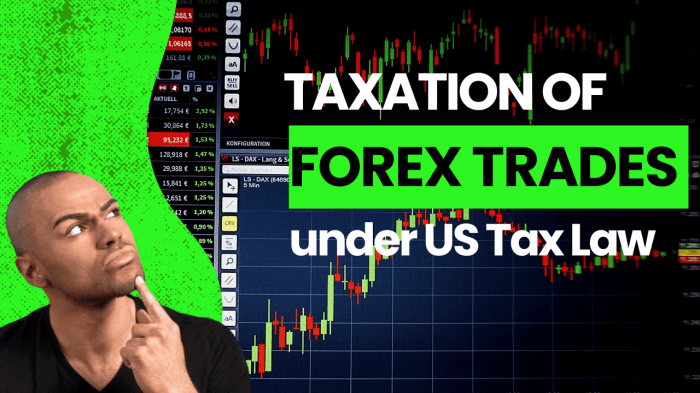
Navigating the world of forex trading involves more than just charting price movements and executing trades. Understanding the tax implications, particularly those stemming from your chosen platform and broker, is crucial for minimizing your tax liability and avoiding potential legal issues. The location of your broker and the platform’s compliance practices significantly impact your tax reporting obligations.
Location of Forex Trading Platforms and Tax Liabilities
The location of your forex trading platform can dramatically influence your tax obligations. If you use a platform based in a country with different tax treaties or regulations than your own, the complexities increase. For example, a US-based trader using a platform registered in the UK might face different reporting requirements compared to using a US-based platform. The platform’s location determines where certain transactions are considered to occur, affecting which tax laws apply. A platform in a tax haven might not automatically shield you from tax responsibilities in your home country, as many jurisdictions have rules addressing offshore accounts and income. Let’s say a US resident trades through a platform in the Cayman Islands; they still need to report their forex trading profits to the IRS, regardless of the platform’s location. Similarly, a UK resident trading through a platform in Cyprus must still declare their profits to HMRC.
Responsibilities of Forex Brokers Concerning Tax Reporting and Compliance
Forex brokers play a vital role in tax compliance. Many reputable brokers provide clients with yearly statements summarizing their trading activity, including profits, losses, and relevant transaction details. These statements are essential for accurate tax reporting. However, the broker’s responsibility primarily lies in maintaining accurate records and complying with relevant anti-money laundering (AML) and know-your-customer (KYC) regulations. Best practices include secure record-keeping, clear and accessible reporting tools for clients, and cooperation with tax authorities when requested. For example, a well-regulated broker will promptly respond to official requests for client data, ensuring compliance with international tax information exchange agreements. Conversely, a broker failing to maintain accurate records or respond to legitimate tax inquiries could put its clients at risk.
Potential Tax Risks Associated with Unregulated or Offshore Forex Brokers
Using unregulated or offshore forex brokers presents significant tax risks. These brokers may operate outside established regulatory frameworks, making it difficult to verify their legitimacy and the accuracy of their reporting. This lack of oversight can lead to inaccurate reporting of trading activity, increased difficulty in claiming legitimate deductions, and potentially expose traders to fraudulent activities. Furthermore, the lack of transparency makes it challenging to determine the true tax implications of using these brokers. For instance, hidden fees or undisclosed commissions could lead to underreporting of profits, resulting in significant tax penalties.
| Risk | Mitigation Strategy | Example | Impact |
|---|---|---|---|
| Inaccurate or Missing Tax Reporting | Utilize a regulated broker and verify reported information independently. | Broker fails to report all trades, leading to underpayment of taxes. | Significant tax penalties and interest charges. |
| Difficulty Claiming Legitimate Deductions | Maintain meticulous records of all trading expenses. | Inability to prove trading-related expenses, reducing allowable deductions. | Higher taxable income. |
| Fraudulent Activities | Thoroughly research the broker’s reputation and regulatory status. | Broker misappropriates funds or engages in other fraudulent activities. | Financial losses and potential legal issues. |
| Lack of Transparency and Hidden Fees | Carefully review the broker’s fee schedule and terms of service. | Undisclosed commissions or fees lead to inaccurate tax calculations. | Underreporting of profits and potential tax penalties. |
Ending Remarks
Navigating the tax landscape of forex trading can feel like traversing a maze, but with the right knowledge, it becomes a manageable path to financial success. By understanding the various tax types, reporting requirements, and allowable deductions specific to your jurisdiction and trading style, you can significantly improve your financial outcomes. Remember, proactive tax planning isn’t just about minimizing your tax burden; it’s about ensuring your forex trading journey remains both profitable and legally sound. So, stay informed, stay compliant, and keep those pips rolling in!
